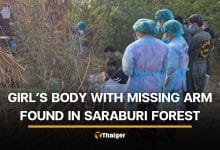Namibia debates German genocide deal

Namibia’s parliament on Tuesday resumed debate around the signing of a joint declaration with Germany regarding the former colonial power’s recognition that it perpetrated genocide in the early 1900s.
Parliamentary debates in June had been suspended as Namibia battled a devastating wave of COVID-19 infections, which delayed the National Assembly in agreeing to Berlin’s May offer of a formal apology for committing genocide in Namibia between 1904 and 1908 against Nama and Herero people.
The apology is tied to an aid deal worth €1.1 billion ($1.34 billion) to be paid out over 30 years.
Disagreement over aid money
The Namibian government initially hailed reaching an agreement with Germany, with President Hage Geingob saying the apology was “a step in the right direction.”
Zed Ngavirue, who had lead negotiations for the Namibian government since 2015, told DW that the Namibian side had reached its key objectives of “acknowledgment of genocide, apology and payment of reparations”.
However, Germany said explicitly that any payments to Namibia should not be understood as reparations in a legal sense.
This fact was interpreted by some Namibians as a sign Germany was not completely ready to be held fully accountable for the actions of German soldiers and military commanders during the colonial period. The final monetary sum also received fierce criticism, with the Council of Chiefs for Nama and Herero people branding the amount “an insult” and “unacceptable”.
Claims of exclusion persist
Germany is set to make funds available for reconstruction, reconciliation, and development projects. But some Herero and Nama leaders have from the outset rejected the Namibian government’s negotiations with Germany, saying they have been excluded from decisions affecting them, which Namibian Prime Minister Saara Kuugongelwa-Amadhila pushed back on.
On Tuesday, hundreds marched to the Namibian parliament to hand over a petition for the Namibian government not to push the joint agreement through parliament.
Demands for equal treatment
“We have the feeling our government is not supporting us. You hear government-to-government, but where are we?” asked Esther Muinjangue, leader of the National Unity Democratic Organisation (NUDO), who has also represented affected communities.
“We want to be treated equally, like other victims of genocide that Germany has paid out and said sorry to,” said Vipua Muharukua an MP representing the Popular Democtatic Movement, who is descended from victims of the genocide.
“A government should govern for all people. We do not need a government that will budge to the demands of Germany,regardless of the fiscal situation. We have history on our side. We Namibians will accept nothing less than just reparations.”
Since negotiations started in 2015, Germany sought, and eventually received, a bilateral agreement with the Namibian government as opposed to negotiating with individual Herero and Nama groups.
Meanwhile, local media reported the opposition Landless People’s Movement (LPM) expressing concern that the ruling SWAPO party would use its parliamentary majority to push the joint agreement through parliament.
“I am calling on the consciences of SWAPO that they do not use their two-thirds majority to push through a deal that all parties are not satisfied with. Politics is about consensus and compromise,” said Henny Seibeb, deputy head of the LPM.
If the motion to sign on to the joint agreement with Germany gets through the National Assembly, analysts say the main challenge for the Namibian government will be to convince Nama and Herero communities to accept the terms of the agreement.
Deaths of key figures
The delay in accepting Berlin’s offer came as COVID-19 gripped Namibia and caused parliament to delay its decision. The pandemic also affected key politicians. Namibian president Hage Geingob isolated after contracting the virus, while lead negotiator Ngavirue died of COVID complications. Paramount Chief of the Hereros Vekuii Rukoro also succumbed to the virus.
What crimes did Germany commit in Namibia?
The German Empire was the colonial power in what was then called German South West Africa from 1884 to 1915.
During that time, its military forces brutally put down several rebellions, killing tens of thousands of people.
German General Lothar von Trotha, who was sent to quell a Herero uprising in 1904, was particularly known for his extreme ruthlessness.
Historians generally accept that up to 65,000 of roughly 80,000 Herero people living in the area at the time, and at least 10,000 of the roughly 20,000 Nama people, were killed.
SOURCE: DW News
Latest Thailand News
Follow The Thaiger on Google News:


























